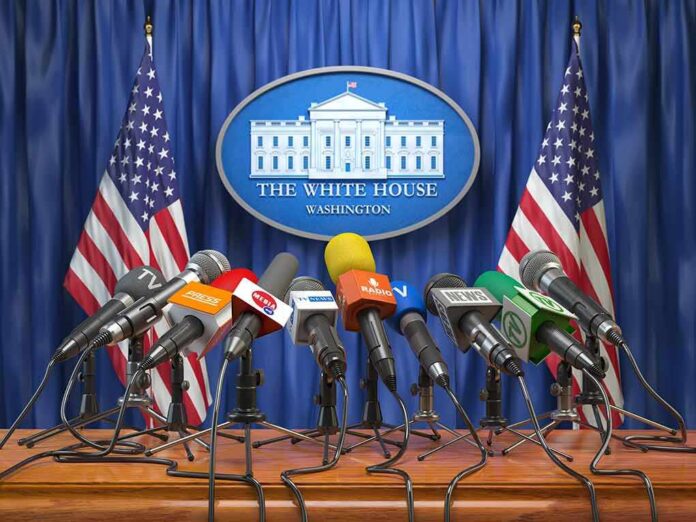Well, folks, it’s that time again. The political arena is heating up, and the gloves are coming off. As we dive into the latest bout between Kamala Harris and Donald Trump, it’s clear that personal attacks are back on the menu. But before we get our popcorn ready for this verbal sparring match, let’s take a step back and examine the real impact these attacks have on campaign outcomes. Buckle up, patriots, because we’re about to separate the facts from the fluff.
The Double-Edged Sword of Negative Campaigning
Negative advertising in political campaigns is as American as apple pie, but its effectiveness is about as consistent as a politician’s promises. While it’s tempting to assume that mud sticks, the reality is far more complex.
Studies show that negative campaigning can indeed tarnish a targeted politician’s reputation. However, it’s not all smooth sailing for the attacker. There’s a significant risk of backlash, which can benefit third-party candidates who stay above the fray. It’s like watching two boxers knock each other out, only for the referee to win the match.
Voter Turnout: The Silent Casualty
One of the most concerning effects of negative campaigning is its impact on voter turnout. As the mudslinging intensifies, especially in the final stretch of a campaign, voters tend to become disillusioned and less likely to cast their ballots.
“Decades of political science research conclude that negative campaigning is largely ineffective.”
This disengagement is particularly troubling for those of us who value civic participation. It’s as if the very foundation of our democracy is being eroded by the acid rain of personal attacks.
The Social Media Amplifier
In the age of Twitter and Facebook, negative campaigning has found a new playground. The instant nature of social media allows attacks to spread like wildfire, often before fact-checkers can even put on their glasses.
“Negative advertising has increased with social media, evident in the 2016 U.S. Presidential campaign (over 55% of ads from Clinton and Trump were negative).”
This digital megaphone has changed the game, making it easier than ever for candidates to sling mud and harder for voters to sift through the muck for actual policy discussions.
The Trust Deficit
Perhaps the most insidious effect of negative campaigning is its impact on public trust. As personal attacks dominate the discourse, voters’ faith in government and satisfaction with democracy take a hit. It’s a bit like watching a couple air their dirty laundry in public – you can’t help but feel uncomfortable and lose respect for both parties.
A Call for Positivity
Interestingly, research suggests that positive campaigning is not only less damaging to the political ecosystem but also more effective in swaying voters. It’s a refreshing thought – imagine a campaign season focused on ideas and solutions rather than character assassinations.
As we watch the Harris-Trump showdown unfold, let’s remember that as voters, we have the power to demand better. We can choose to reward substance over slander, vision over vitriol. After all, the future of our nation is too important to be decided by who can sling the most mud.
In the end, my fellow Americans, it’s up to us to rise above the muck and make informed decisions based on policy, not personality. So let’s clean our windshields, clear our vision, and drive this great nation forward – preferably without getting stuck in the mud along the way.
Sources:
1. Positive Spillovers from Negative Campaigning
2. Negative campaigning and its consequences: a review and a look ahead
3.Why negative campaigning doesn’t work
More From Around The Web:
ELECTION MATTERS: DO GENERAL ELECTION CAMPAIGNS ACTUALLY INFLUENCE THE RESULT?
POLITICAL ATTACKS DURING CAMPAIGNS
ATTACK ADS & MEDIA / CAMPAIGN SPENDING











